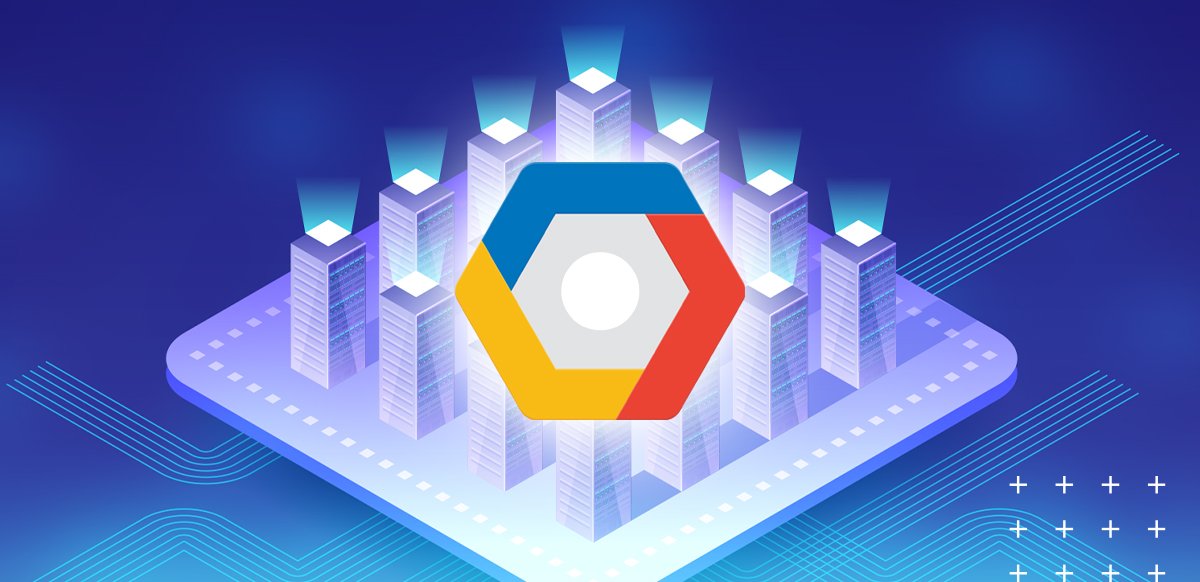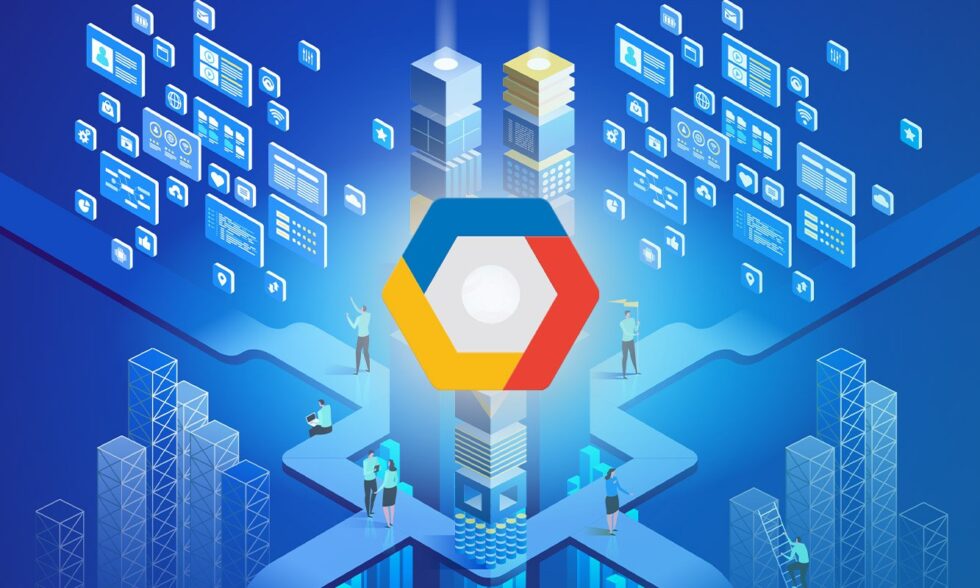The success of every company is based on correct business decisions that can only be taken with the appropriately delivered information and data. We can say that the future of enterprises depends on how efficiently decision-makers receive relevant data. Studies have confirmed that enterprises are looking for new innovative ways of data management. Find out what open source databases and GCP are, and why they are worth considering.
Commercial databases have lost popularity in recent years. This popularity has been taken up by open source databases. The growing popularity of these solutions is additionally driven by developments in cloud solutions such as GCP (Google Cloud Platform), which are ideal for database management in companies. Find out why it is worth considering these solutions and what open source databases and GCP are.
What are open source databases?
A database is a collection of information stored electronically on local discs, external media or cloud infrastructure. Although a DBMS (Database Management System) is used to manage the databases, it is widely accepted that a database comprises the entire system of the database, database management system and the connected applications.
Two basic groups of databases are available on the market, namely commercial and open source. As the name suggests, commercial databases are payable and a limited number of people have access to their source code. Open source databases are usually produced for relative freedom of use, they are free of charge, and numerous of specialists may contribute to the development of such projects.
Examples of commercial databases:
- Oracle
- IBM DB2
- Microsoft SQL Server
- Sybase Adaptive Server
- Splunk
Examples of open source databases:
- MySQL Community Server
- PostgreSQL
- MariaDB
- FireBird
- MongoDB
- Derby
- SQLite
As recently as ten years ago commercial databases held sway. Oracle, Microsoft and IBM prevailed on the market, while open source databases were accused of a lack of stability and technical support from technology owners, as well as a low level of security. A lot has changed in recent years. These days millions of applications use open source databases, working perfectly and saving money that would have to be spent on commercial service providers.
GCP and the innovative DbaaS model
GCP (Google Cloud Platform) are cloud services delivered by Google. The company develops and offers more than 100 cloud products that work perfectly in many businesses over the world. Cloud services are significantly cheaper than traditional local infrastructure maintained in the company. It is much easier to scale digital products in the cloud, which is of key importance for enterprises. The entire system can be managed in one location allowing businesses to automate a lot of processes that previously had to be carried out manually.
Cloud services are developing dynamically and increasing their business potential. Open source technologies implemented on GCP are being tested and developed by thousands of companies, which has had a strong impact on their efficiency and security.
Google Cloud Platform strongly supports the idea of developing software in an open source model. The community of IT specialists who create and develop database management systems have Google Cloud Console at their disposal. This tool enables them to prepare innovative open source solutions combined with cloud services.
GCP does not impose any specific technology on users. It can use various databases: MySQL, PostgreSQL, MongoDB, Redis, Cassandra, Google Cloud Datastore – they are all equally efficient.
The increase in demand for innovative database management systems, usually created within an open source model, has led to the development of a new Database-as-a-Service (DBaaS) services. As a result, the criticism against open source products is no longer valid.
Why is it worth considering open source databases on GCP?
Why are open source databases in the cloud a considerably better solution than a commercial option? A few years ago commercial providers (mainly Oracle and IBM) discredited open source databases, accusing them of no reliable support, market instability, low flexibility in the case of the need for changes, uncertain operation and unreliable tests.
Over the past few years the cloud market has developed considerably and adapted the potential of open source databases, ensuring all the benefits of the software in this model. Google is an experienced provider of technology services for business, and strongly supports and develops open source databases. This is one of the main factors that makes all the accusations against these solutions less credible.
2 major cloud database models:
- Traditional model – works on similar principles as databases on local in-house servers yet it uses the cloud infrastructure. A database is deployed to a reserved space in the cloud and managed by the IT specialists of the company that owns the database.
- DBaaS model (Database-as-a-Service) – instead of users employing their own specialists for database management, they can use outsourcing and the services of companies that provide comprehensive database management, i.e. installation, maintenance, automation of handling and scaling processes as well as data security.

Advantages of cloud open source databases
Scalability, security and management are ensured by a cloud provider. Owing to the fact that databases have become a permanent cloud service, users receive real support from such companies as Google and Amazon. The growing popularity of cloud databases has created a specific market need, and a lot of companies that support database users have been set up. Such dispersion gives greater security than when the market belonged to the monopolists (like Oracle in the past).
A wide variety of open source solutions allows the selection of technologies that best suit the business. This array includes those that are nearly a perfect copy (cloned version) of expensive commercial solutions. What’s more, open source often offers additional functionalities that give technologies new practical business possibilities, and become independent innovative solutions that work much better than their paid prototypes.
Open source databases are usually free of charge. Besides, storing databases in the cloud generates much lower costs than in the traditional model of databases located on physical office infrastructure.
Companies are increasingly moving to cloud services. Entire systems or their parts are located in the cloud. Within hybrid solutions, some data can still be stored on local servers. Regardless of the type of cloud services, database system management is much easier if the database itself is located in the same environment.
Cloud services enable using a lot of different databases in one place. No matter whether you need a relational, NoSQL, object or graph database. You are not dependent on one specific provider and you can use as much technology to process or store data as you need at a given time. Implementation of a database in the cloud is relatively easy and does not require many additional DevOps in practice.
The level of monitoring (e.g. health checks, memory usage, processor usage) is much higher than that of many local physical servers. Tools for cloud application management, e.g. Kubernetes, allow for monitoring the current status of applications and files, as well as for automating error correction. There is no need to have a lot of various administrators. Intuitive cloud management allows users to set up configurations (e.g. alerts) by themselves.
Open source code security is often questioned. A closed code is managed and analysed by a relatively smaller number of people. In open source everyone sees the code and may damage the software yet a lot of people support the development of the product and regularly improve cybersecurity. Even if someone wanted to use the error, a considerable number of people can fix it at the same time. Cases of security violation happen even in closed code. Database infrastructure security depends mostly on cloud service providers and the tools used to secure our applications and files. Cloud database storage enables application management with no fear around data security and autonomy. Google offers encryption keys for efficient sensitive information security. All users can also implement their own encryption keys.
Scaling of open source databases in the cloud is the next factor that favours the use of this solution. GCP offers a variety of tools to automate scaling of computing capacity. When the database expands, the system automatically adds the required number of virtual machines to maintain relevant capacity of the application. This allows for effective development of digital products and provides users with constant quality of services.
Additional support is not necessary and there is no need to employ additional administrators as your existing IT specialists can deal with DevOps. Thanks to the development of services in the DBaaS model, many open source databases are created and maintained by stable software houses and providers of cloud services.
Google strongly supports open source and cooperates with many leading providers of DBaaS services, giving them access to hosting and infrastructure for useful tools in their cloud. The use of Google Cloud Platform gives you access to the wide array of tools and technologies of various providers.
The community is the driving force for the development of open source software. Trends clearly turn to free of charge tools developed by independent specialists. Commercial licences are being increasingly considered old-fashioned. A few years ago an open source database startup Aurelius (by the creator of the Titan database) was purchased by DataStax, which rippled widely. Immediately after taking over the project, DataStax closed it. The Open Source community cloned Titan and a new powerful product appeared – Janus Graph (graph solution). This situation proves that open source allows for developing products, even if for various reasons a project has been stopped or blocked.
The high degree of innovation of open source databases results from the nature of this concept. Its objective is to combine the efforts of various specialists when creating new innovative technology solutions. Open source may have some disadvantages, yet an open idea of such projects enables combining the best and most innovative ideas of IT experts from all over the world. If your business is to achieve competitive advantage in the market, you should move to open source.
The Google brand is commonly known as a huge technology tycoon that strongly supports open source technologies. The number of solutions in this category is enormous. Those customers who use at least one digital product by Google can benefit from the compatibility of Google services and efficiently combine tools in a total system to make business management easier.
Using DbaaS in the Google cloud allows for easy integration with other services offered by this brand. These solutions include Google Compute Engine and Google Kubernetes Engine. Find out what Google Kubernetes is and why you need it.
Another great advantage of GCP is the fact that you benefit from the reputation of Google, a reliable technology partner, particularly in business and cloud service infrastructure support.
Summary
The key factors in efficient digital services are data security, reliable solutions, easy scaling and flexible application management. This is what most entrepreneurs take into consideration before deciding to use open source databases and move their businesses to cloud services. Open source and GCP databases are technologies that in a few short years have developed to such an extent that they are now being used by the most developed companies on the market.
Commercial manufacturers had been promoting the negative aspects of using open source databases for a few years. After some time, even the renowned technology brands as Amazon, Google and Microsoft have moved these solutions to the cloud and today cloud database solutions are offered by the largest players on the market.
For a few years Oracle has been recording losses related to licences as customers move into cloud open source databases. What’s more, Oracle, once active in the anti-promotion of open source and cloud solutions, today recommends moving to the cloud. In contrast, it is possible to use commercial databases in GCP without Oracle.
Cloud based open source databases in the Google Cloud Platform are a solution that will work perfectly in every branch. In the end, modern and conscious businesses should not ask whether “it is worth choosing open source databases in cloud services”, but quickly decide “which cloud provider to choose and what type of open source database will work best for their companies”.
If you want to move your business to a new level and use the most innovative solutions available on the market, but you are not sure what factors you should pay attention to when choosing them, contact us. It will be our pleasure to recommend you technologies that will help you efficiently expand your business.
Check all our cloud services!




